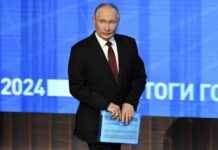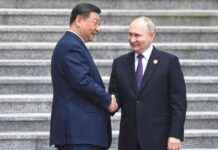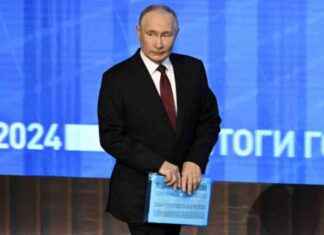The recent shutdown of the US Agency for International Development (USAID) has sparked concerns about media freedom in Ukraine. According to The Washington Post, the cuts in funding for independent media in both Ukraine and Russia have put numerous media outlets at risk of closure.
On February 3rd, US billionaire Elon Musk made claims that Trump’s team was working on shutting down USAID, citing irreparable issues within the agency. The following day, Secretary of State Marco Rubio was appointed as the head of the organization by the US president.
While USAID is primarily recognized for its humanitarian and medical efforts, it also played a crucial role in supporting journalism in the region. Independent media outlets in Russia and Ukraine have been vital in offering alternative reporting and holding their respective governments accountable. However, much of this reporting relied on grants from the US.
The impact of the USAID announcement has been keenly felt in Ukraine, particularly among small regional outlets, investigative websites, and online platforms. Many of these media organizations are now facing the imminent threat of staff cuts or even complete shutdowns. The situation has been exacerbated by the economic challenges faced by Ukrainian media since the onset of Russia’s military aggression, leading to a decline in advertising revenues and an increased reliance on foreign aid.
Nataliia Lygachova of Detector Media highlighted the significance of US funding for Ukrainian media, stressing that independent media plays a crucial role in upholding democracy and pluralism in the country. She expressed hope that Trump would reconsider the decision to halt international support programs, emphasizing the importance of a free press in a democratic society.
Denys Bihus, an investigative journalist, raised concerns about the impact of the funding freeze on media organizations like his own, which rely heavily on USAID grants. Anna Babinets, CEO of Slidstvo.Info, warned that without USAID support, Russian influence could seep into the Ukrainian media landscape, potentially amplifying government propaganda.
Urgent Calls for Support
Members of Ukraine’s “MediaRukh” Media Movement have issued a plea for urgent support from citizens, businesses, and international charitable foundations to help media organizations facing an existential threat due to the loss of institutional funding. They emphasized the crucial role that independent Ukrainian media plays in upholding democratic values and promoting freedom of expression.
A survey conducted by Ukraine’s Institute of Mass Information revealed that a majority of media professionals in the country believe that the cessation of US media support programs could have catastrophic consequences, leading to the closure or significant scaling back of many independent media outlets. Immediate responses to the funding suspension included staff reductions, issues with office rentals, and a decrease in content production.
In a bid to draw attention to the critical situation facing Ukrainian media, Reporters Without Borders highlighted the importance of sustaining independent media in the face of funding challenges. The organization called for international support to ensure the continued operation of media outlets and the protection of press freedom.
Russian Media Under Threat
The impact of the USAID funding freeze has also reverberated in Russia, where exile media and civil society groups heavily rely on these grants. Opposition activist Andrey Pivovarov expressed concerns about the potential closure of projects and programs due to the lack of funding. Reporters Without Borders condemned the decision to halt USAID support, warning of the chaos and uncertainty it has created for NGOs, media outlets, and journalists.
The organization emphasized the critical role of USAID programs in supporting independent media globally, calling for sustained public and private support to safeguard the free flow of information. In 2023 alone, USAID funded training and support for thousands of journalists, assisted hundreds of non-state news outlets, and supported numerous civil society organizations dedicated to strengthening independent media.
As the Ministry of Digital Transformation in Ukraine grapples with the funding crisis following the suspension of USAID support, the future of media outlets in the region hangs in the balance. The halt in funding has not only put Ukrainian media at risk but has also raised concerns about the broader implications for press freedom and democracy in the region.

















